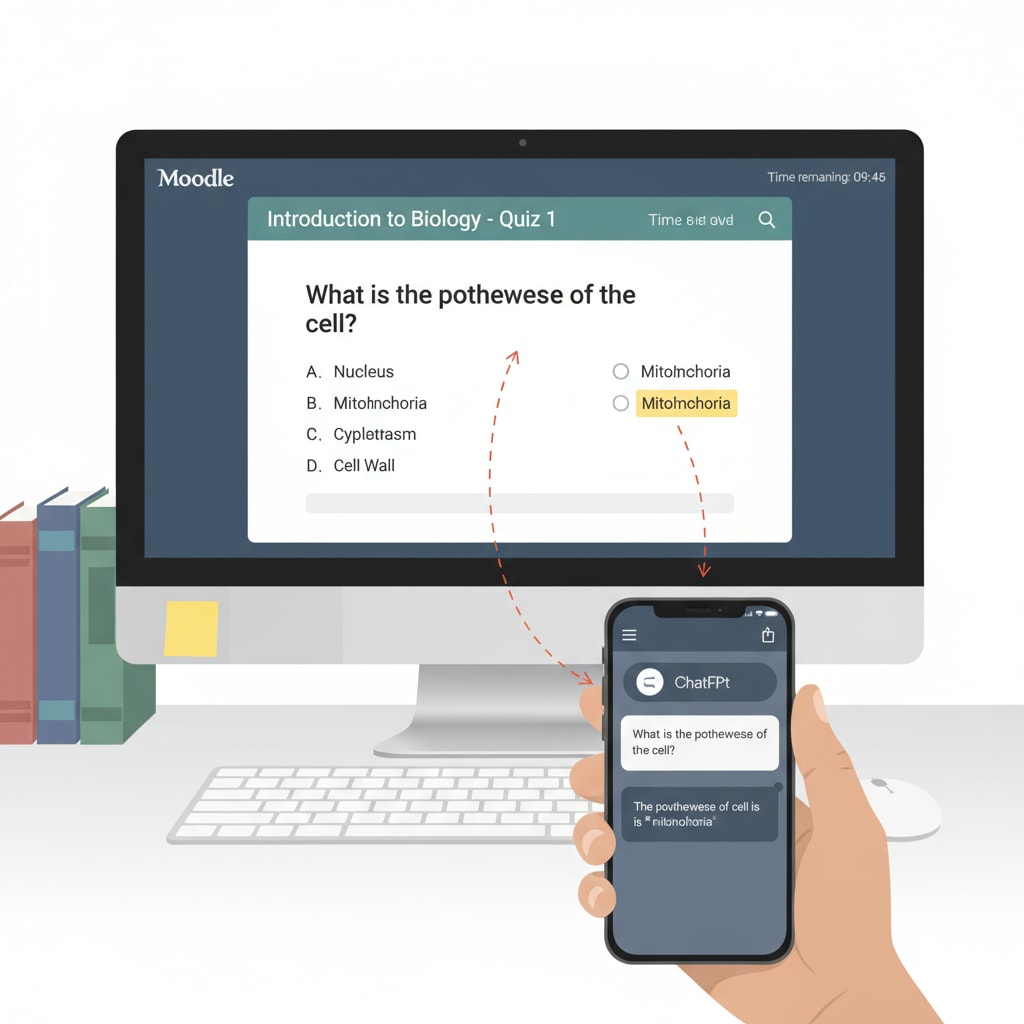In the digital age, the combination of Moodle online quizzes, ChatGPT, and screenshots has created a new challenge for educators. The ease with which students can take screenshots during an online quiz and seek answers from ChatGPT is a growing concern. As AI tools become more advanced, the battle to maintain academic integrity in online education has entered an invisible battlefield.

The Rise of AI – Assisted Cheating in Moodle Quizzes
The popularity of ChatGPT has led to a significant increase in AI – assisted cheating. Students find it tempting to use this powerful language model to answer quiz questions. In Moodle online quizzes, the ability to take screenshots allows them to quickly send the questions to ChatGPT and receive answers. For example, a student facing a difficult multiple – choice or essay question can capture the question, send it to ChatGPT, and get a ready – made response. This not only undermines the purpose of the quiz but also devalues the educational experience.

The Challenges of Tracing Screenshot – Based Cheating
Tracing whether a student has used screenshots to seek ChatGPT’s help is no easy feat. Moodle, while a powerful learning management system, has limitations in detecting such behavior. Screenshots leave few digital footprints directly within the Moodle environment. Moreover, ChatGPT interactions can be done discreetly, making it difficult to connect the dots between a student’s quiz performance and their use of the AI tool. Educators often have to rely on indirect evidence, such as sudden improvements in writing style or inconsistent answering patterns.
Strategies for Educators to Combat Cheating
Educators can adopt several strategies to address this issue. First, they can design quizzes in a way that discourages the use of AI. For instance, include more open – ended questions that require in – depth understanding and personal insights, rather than straightforward factual questions that ChatGPT can easily answer. In addition, educators can use proctoring tools. Some proctoring software can monitor a student’s screen activity during the quiz, detecting if they switch to other applications, such as the ChatGPT interface. Another approach is to educate students about the importance of academic integrity. By raising awareness, students may be less likely to engage in cheating behavior. Maintaining Academic Integrity in Online Courses on Chegg AI in Education on Educause
In conclusion, the battle against AI – assisted cheating in Moodle online quizzes, especially through the use of screenshots and ChatGPT, is an ongoing one. Educators need to be vigilant and proactive in implementing strategies to maintain the integrity of online education. By understanding the challenges and taking appropriate measures, they can ensure that students are truly learning and being evaluated fairly.
Readability guidance: This article uses short paragraphs to present clear ideas. Each H2 section has a list – like structure to summarize key points. The proportion of passive voice and long sentences is controlled, and transition words are used throughout the text to enhance readability.


